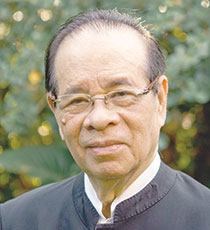A RETIRED career ambassador has earned a prominent local columnist's ire for proposing that the Philippine government ask the United Nations Security Council (UNSC) to adjudicate its dispute with China in the South China Sea. Without having to use strong language, the columnist is, of course, right: the UN Security Council does not adjudicate territorial disputes; moreover, China, the main party to the dispute, is a veto-wielding UNSC member, and by that veto can defeat any UNSC resolution that seeks to challenge its position.
This is not to say that a veto at the Security Council can no longer be challenged. In principle, a vetoed UNSC resolution can still be overridden. If an interested party succeeds in convening a "special emergency session" of the UN General Assembly (UNGA) within 24 hours of the vetoed resolution, and two-thirds of the assembly approve the appropriate resolution, then the vetoed resolution is overridden. But supposing the Philippines brings the conflict before the Security Council, and the resolution is vetoed by China despite the support of the other members, can the Philippines count on at least two-thirds of the UNGA to override China's action?
Continue reading with one of these options:
Ad-free access
P 80 per month
(billed annually at P 960)
- Unlimited ad-free access to website articles
- Limited offer: Subscribe today and get digital edition access for free (accessible with up to 3 devices)


